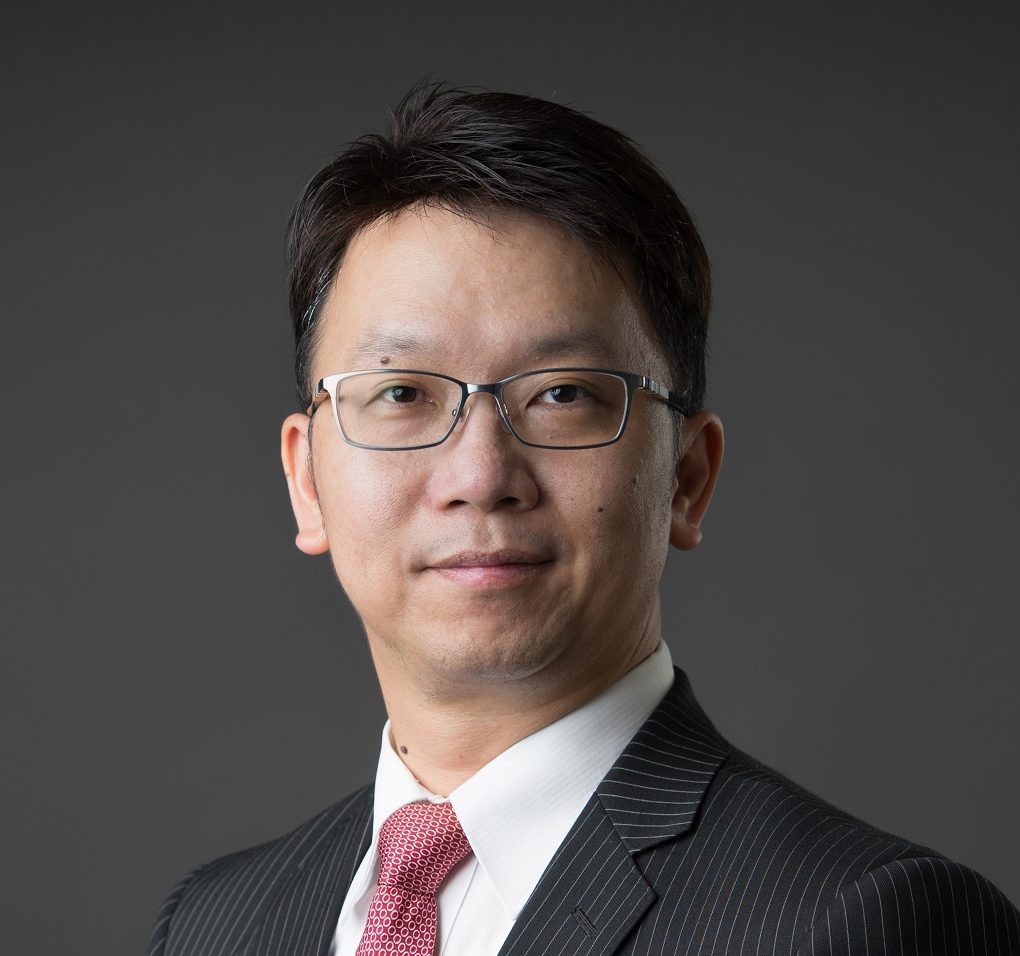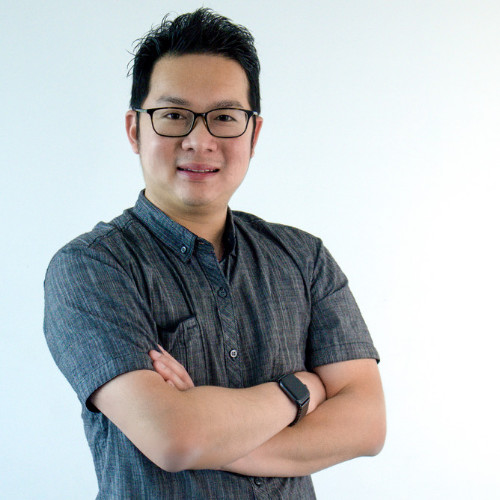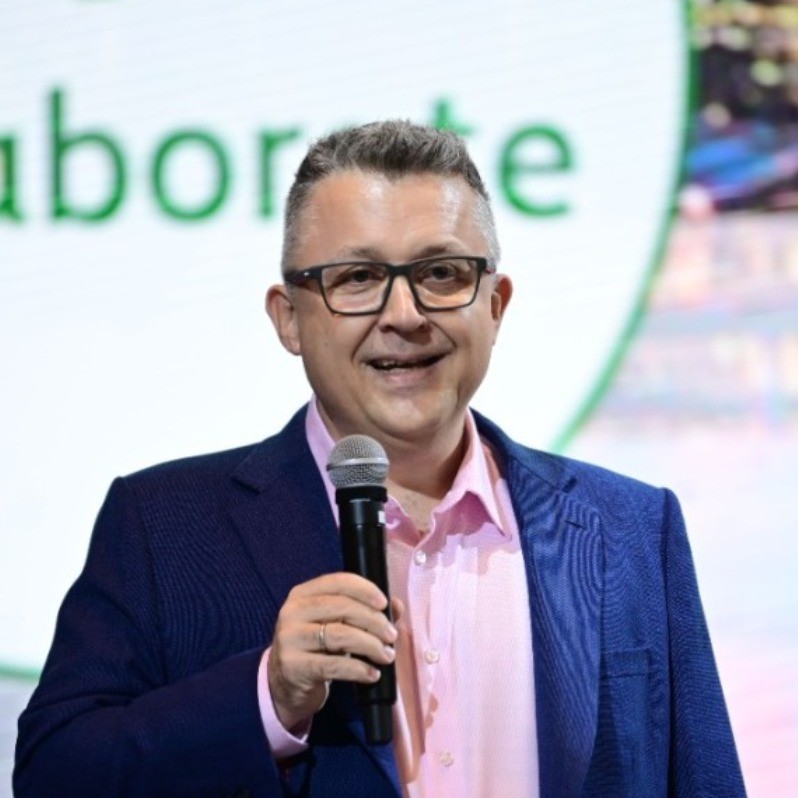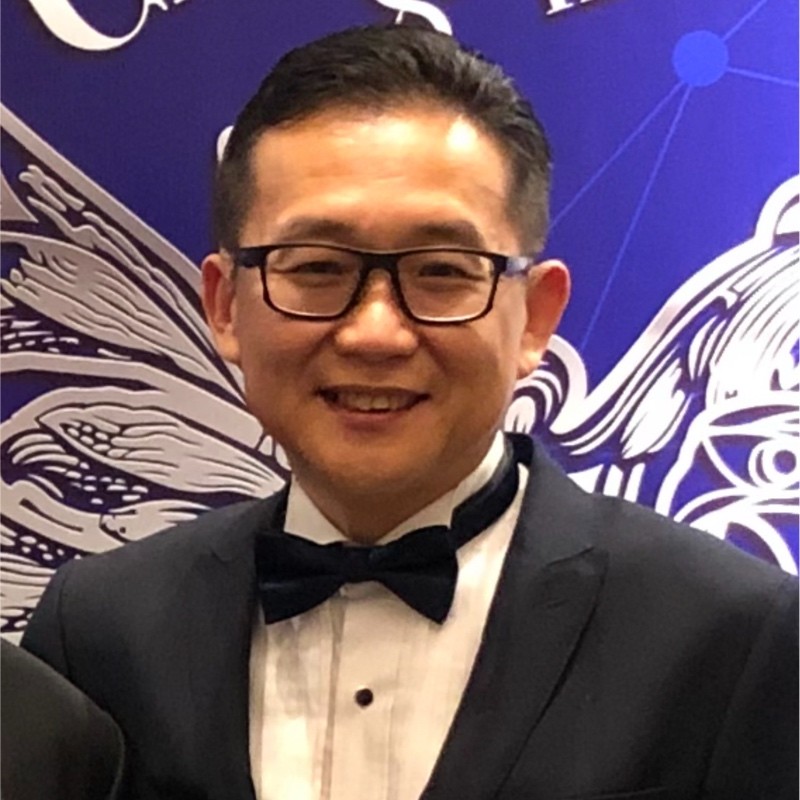- I recommend the Pixel 9 to most people looking to upgrade - especially while it's $250 off
- Google's viral research assistant just got its own app - here's how it can help you
- Sony will give you a free 55-inch 4K TV right now - but this is the last day to qualify
- I've used virtually every Linux distro, but this one has a fresh perspective
- The 7 gadgets I never travel without (and why they make such a big difference)
25 enterprise tech predictions and goals for 2025, from APAC CIOs

In 2025, AI will transform into ‘everyday AI’ — affordable, utility-based, and accessible to all. From simplifying daily tasks to boosting personal productivity, it will empower individuals to level up their skills and unlock new opportunities. For businesses, this means reimagining their offerings to keep pace, as ‘good enough’ won’t cut it anymore. The challenge will be staying competitive in a world where AI amplifies expectations, requiring a growth mindset and clarity on the ultimate goal. As AI becomes a natural extension of our lives, those who embrace it with purpose will thrive.

Alex Tan – Group Chief Information Officer (Yinson)
As 2025 unfolds, we foresee a shift in the technology landscape:
The generative AI (genAI) frenzy will give way to pragmatic applications, commencing with bespoke in-house chatbots that streamline operations. AI-infused software-as-a-service (SaaS) solutions will become the norm, elevating business efficiency.
Meanwhile, the narrowing air gap in industrial control systems (ICS) will propel operational technology (OT) security to the forefront — necessitating robust and proactive measures.
Furthermore, the year will mark a significant leap towards the democratisation of IT — with citizen IT and fusion teams playing pivotal roles in bridging the gap between technology and business strategies, fostering a culture of inclusive innovation.

Christian Piccardi – Chief Information Officer (Mox Bank)
In 2025, Mox will extend the use of AI and automation to enhance customer support, decision-making, and operational efficiency while exploring AI co-piloting to augment tech capabilities. We will also incorporate emerging application ecosystems such as HarmonyOS into our environment to broaden customer coverage and serviceability. Continuing the migration to multi-/hybrid-cloud environments for flexibility and scalability will be another focus area and equally important is further strengthening of cloud security and compliance practices. From a workforce perspective, Mox will increase investment in training and up-skilling measures to support our people in the use of new technologies and digital tools.

Chua Yong Howe – Chief Digital Officer (UEM Edgenta)
2025 will be the year of AI agents redefining digital transformation. These autonomous agents — capable of partially or fully taking over human roles — will dominate trends like service-as-software. In green- and smart-building management, AI agents paired with the internet of things (IoT) will handle routine metrics, issue alerts, and autonomously schedule maintenance crews for optimal efficiency.
My goal this year is to revolutionise facility management by deploying AI agents to augment maintenance teams, shifting from manual to highly autonomous operations. Additionally, we aim for AI agents to handle over 90% of contact centre tasks, streamlining customer interactions and driving transformative efficiency.

Cornelius Budianto – Director, IT (Kompas Gramedia)
GenAI will transform customer interactions with more dynamic and personalised experiences. Today, many chatbots leave customers feeling disconnected — especially as companies make human customer service harder to access. By 2025, genAI will bridge this gap by deeply understanding customer needs and delivering tailored solutions like personalised recommendations and targeted marketing. Smarter AI chatbots will offer empathetic and efficient support, while predictive analytics proactively resolves issues. This shift will streamline operations and lower costs but still enhance customer satisfaction and business growth.

Daniel Suraboyini – Global Chief Information Officer (SIPEF)
Digital transformation goals for SIPEF Group in 2025 will focus on driving innovation and operational efficiency through key projects like Project Horizon and Program Fruit (automation, drones, IoT, and AI initiatives). This year, we will automate all our tanks across our mills for real-time product information with accurate storage and forecasting information. The three-phase project plan of Program Fruit is advancing as we bring in AI for management reporting as well as descriptive and predictive analytics with a goal towards genAI. 2025 will see drones as part of our operational support to enhance the capabilities for large-scale plantation activities from pesticide-spraying to fruit-harvesting. Thanks to our SIPEF management for their continuous support and encouragement in overcoming challenges, ensuring stabilisation, and aligning digital strategies with regional organisational goals.

Dr Darron Sun – Head of Information Technology (Hong Kong Housing Society)
Digital transformation will be all about smarter, faster, and more connected experiences in 2025. AI and machine learning will dominate, powering hyper-automation and real-time decision-making. Edge computing — boosted by 5G — will make data processing quicker and more efficient, especially for IoT devices. Quantum computing might start showing practical uses, while blockchain will keep reshaping finance and digital ownership. Extended reality will become more mainstream, transforming industries like retail and healthcare. Sustainability will also be huge, with green tech and carbon tracking tools gaining traction. Also, expect digital twins and autonomous systems to revolutionise industries like manufacturing and logistics. Exciting times ahead!

Dave Chen – Head of Information Technology (Hong Kong Trade Development Council)
AI Integration — the focus will be on the business value AI brings, emphasising its practical applications. AI running at the edge will gain traction, enabling faster responses and supporting a wider range of use cases.
Cybersecurity — this remains a top priority, with increased resources to combat phishing through user awareness programs. Data and AI governance will also be a key focus, ensuring the secure and ethical use of information.
Together, these advancements in AI and cybersecurity will drive significant digital transformation — creating more efficient, secure, and responsive systems across various industries. Exciting developments ahead!

Franky Lam – Associate Director of Information Technology (Hong Kong-Shenzhen Innovation and Technology Park)
An increasing number of enterprises are leveraging AI across various domains to enhance operational efficiency, create new business values, and improve decision-making. However, it is crucial for organisations to prioritise AI governance — including regular risk assessments of data involved in AI automation — to mitigate potential side effects.
Edge computing in hybrid- and multi-cloud environments will become more prevalent, facilitating data processing closer to the source for quicker insights within a more flexible and scalable cloud infrastructure.
Additionally, senior management is increasingly focused on the sustainability of digital transformation initiatives in response to stakeholders and societal demands for corporate responsibility.
Furthermore, 5G and IoT technologies play a pivotal role in driving many digital transformation initiatives by enabling faster, more reliable connectivity and the development of smarter applications.

Gabriel Tuason – Head, Information Security (Energy Development Corporation)
Aside from cyber incidents escalating due to AI-driven attacks, organisations will start shifting their programs and priorities from cybersecurity to cyber resilience.
While prevention (security) is important, organisations are increasingly focusing on recovery and business continuity. To draw parallels — a person who prioritises their health through sufficient sleep, a balanced diet, and regular exercise may still fall ill. But thanks to these investments in their well-being, they are likely to recover faster and experience less severe effects (in short, be more resilient) compared to someone with a sedentary and unhealthy lifestyle.

Hendy Harianto – Group Chief Information Technology Officer (Meratus Group)
AI-powered automation, hyper-automation, agentic AI, AI-powered advanced analytics, and AI-driven enterprise resource planning (ERP) systems will radically transform business operations. AI-powered automation will streamline repetitive tasks, reduce human error, and enhance operational efficiency by 30-40%. Hyper-automation will extend automation across complex workflows, integrating systems and processes to optimise entire business functions and drive agility. Agentic AI will further improve decision-making and support customer service, human resources (HR), and IT operations. AI-driven ERP systems will automate key areas like finance, supply chain management, and analytics — enabling businesses to make faster, data-driven decisions.
Companies adopting these technologies will gain a competitive edge, lowering costs, improving efficiency, and accelerating innovation.
Overcoming challenges such as AI bias, data privacy concerns, and workforce reskilling — as well as significant investments in technology, talent, and infrastructure — are crucial to unlocking AI’s full potential and staying competitive in the rapidly evolving digital landscape.

Ichwan Peryana – Co-Founder & Director (Pinjam Modal)
For 2025, I think we will see the rise of genAI in enhancing customer experience and personalisation at scale. With advancements in AI and cloud infrastructure, organisations will leverage these technologies to deliver hyper-personalised experiences, create value-added services, and improve operational efficiency. My goal for 2025 is to drive the integration of AI-based solutions into critical business processes to better-serve our ecosystem and meet evolving customer expectations.

Irvan Bastian Arief, PhD – Vice President of Data Science, Machine Learning Engineering, Technology P.R.O. (Payment – Refund – Order) and Technology Growth (tiket.com)
2025 is poised to be a groundbreaking year for AI and beyond. AI is no longer a luxury for organisations; it’s as essential as water is to humans — a fundamental necessity for survival. I confidently proclaim that AI has become the new water for businesses. With the advent of agentic AI, I foresee a future where every employee embodies the spirit of a mini CEO. The core idea of agentic AI lies in having a single AI facilitator capable of coordinating with multiple specialised actionable AIs. Imagine a world where we can delegate several tasks to this AI facilitator, enabling each actionable AI to carry out specific responsibilities on behalf of the user — far beyond merely answering questions, as current tools like ChatGPT or Google Gemini do. tiket.com will be one of the technology companies to turn this idea into a reality.

Jackson Ng – Chief Operating Officer (Azimut Investment Management Singapore)
2025 marks the arrival of agentic AI — where machines don’t just automate tasks but actively shape our workforce. Contrary to fears of obsolescence, this signals a shift into another intelligent age. The familiar phrase “AI won’t replace humans, but humans who use AI will replace those who don’t” now feels outdated. AI agents have the potential to replace many current roles, and simply using AI tools won’t guarantee relevance. Leaders must rethink and redesign corporate structures and roles to integrate these agents among us. For individuals, AI shouldn’t be seen merely as a productivity tool — it should be embraced as an extension of oneself. This requires understanding of how AI and machine learning are built and trained, as well as how they learn. Before machines achieve superintelligence, we must strive for our own ‘superhuman’ potential through integration with AI.

Jan Olesen – Global Head of Digital Business Solutions, VP (Indorama Ventures)
I believe we will see the first real effects of AI to the workforce and behaviours. Unfortunately, I expect this will be in the form of workforce reductions and whole business models being obsolete — like Stack Overflow. Digital transformation projects will benefit from AI maturing in terms of how the digital solution is implemented and adopted. For example, AI trainers training humans in use of digital tools.
This year, we aim to deliver an ambitious Global Digital Transformation roadmap with more than ten go-lives planned across our global organisation. I’d like to also see AI-first solutions emerging, rather than AI being a bolt-on feature to software platforms.

Jim Man – Chief Information Officer (United Asia Finance)
In 2025, I predict that genAI will become a cornerstone of digital transformation — enhancing decision-making and operational efficiency. Our goals include fortifying cybersecurity, driving cloud transformation, and re-platforming our core systems to be fully cloud-native. Additionally, we aim to establish digital partnerships through application programming interfaces (APIs) to foster innovation and agility across the organisation. Embracing AI-driven decision-making will further empower our teams to respond dynamically to market changes.

Julian Wong – Regional Information Technology Director, Southeast Asia (The Ascott Limited)
2025 is expected to see a surge in AI-powered hyperpersonalisation, transforming customer experiences across industries. Businesses will leverage AI to deeply understand individual preferences, delivering tailored experiences from product recommendations to personalised services. This will enhance customer satisfaction, loyalty, and drive business growth.

Juliana Chua – Head of Digital Innovation, Global SSC (EssilorLuxottica)
In 2025, expect lots of policy changes around technology with more AI. Balancing short-term wins with foundational improvements, companies are looking to turn tech experiences into measurable returns. With more AI experimented prior, my prediction for 2025 is with ethical agentic AI, autonomous with real-time adaptation, and consideration for societal impact. Alongside zero trust architectures, scalable with continuous adaptation to protect consumer data as cybercrime continues to grow into AI-powered malware and IoT-based attacks.

Kang Yew Jin – Chief Technology Officer (PLUS Malaysia)
Most of the attention in the last two years have been on large language models (LLMs) — specifically on ChatGPT in its various permutations, as well as competitors like Anthropic’s Claude and Meta’s Llama models. But for many business use cases, LLMs are an overkill as well as being too expensive and too slow for practical use.
Looking ahead to 2025, I expect small language models — specifically custom models — to become a more common solution for many businesses. Smaller models are more tailored — allowing businesses to create AI systems that are precise, efficient, robust, and built around their unique needs. They can be more easily trained on a company’s own data.

Philip Yeung – Regional IT Director, Asia Pacific (De’Longhi Group)
The topic of AI has been a hot one in 2024 — many companies are investing in it and beginning their journey to embracing it. I predict that in 2025, most organisations will speed up their momentum to improve customer experiences and business efficiency using AI and strengthen their AI governance frameworks through AI governance platforms to comply with regulations and Responsible AI standards driven by the increasing AI use cases.

Dr Ralph Ostertag – Director Digital & Technology, Asia Pacific (The Heineken Company)
Two major goals for me this year are to successfully lead Heineken’s Digital Backbone Transformation program in the APAC region and to launch Heineken’s first GenAI Lab in Singapore, in collaboration with AI Singapore. The Digital Backbone program — our biggest business transformation program in history — will streamline our operations and enhance our ability to innovate and grow by consolidating over 45 different ERPs globally into a single lean core system and implementing a suite of approximately 40 cloud-based standard business platforms across all business functions. The GenAI Lab will explore and develop innovative genAI solutions for the company on a global level and will create the internal capabilities to uncage the full power of genAI.

Stuart Gurr – Group Chief Information Officer APAC (Deutsche Bank)
In terms of industry predictions for 2025, it’s hard to look beyond AI and the rapidly evolving impact it will have — the disruption of the software development industry being a clear example. AI-assisted coding tools will continue to gain traction in 2025 — in areas such as legacy code translation (to more modern languages), richer testing, and accelerated development.
On the platform side, corporates will double down on workload migrations to hybrid cloud as they seek to escape the shackles of technology obsolescence, enhance security, and reap the benefits of infrastructure automation.

Thang Joo Ming – Chief Information Officer (HELP University)
In 2025, AI technology will become increasingly accessible due to advancements by Chinese AI LLM DeepSeek.
This year, I aim to integrate an AI-based chatbot into our university’s public-facing website — enhancing user experience and support.
Additionally, we plan to harness big data for AI-driven predictive analytics — providing valuable insights to our senior management team. This strategic approach will not only improve decision-making but also position our institution at the forefront of technological innovation in education.
By embracing these cutting-edge tools, we can better serve our community and stay ahead in the ever-evolving digital landscape.

Victor Yeo – Head of IT (Dentons Rodyk)
In 2025, our digital transformation aspirations focus on advancing people, processes, and technology to drive innovation and efficiency. We are committed to upskilling our workforce in prompt engineering, enabling teams to unlock the full potential of AI-driven solutions. For processes, our priority is refining methods to seamlessly integrate existing knowledge bases — paving the way for more robust genAI applications. On the technology front, we aim to develop and implement task-based AI bots designed to handle common staff queries —streamlining operations and enhancing user experience. These goals reflect our vision for a future-ready, adaptive, and collaborative organisation.

Will Liang – Executive Director / CTO, Asset Management (MA Financial Group)
2025 will redefine the enterprise SaaS market as AI agents (digital workers) take centrestage, but not in the way many expect. While some foresee widespread adoption and seamless integration, the reality will be more disruptive. Many SaaS products will become obsolete and industry consolidation will accelerate as the market struggles to adapt. Simply layering AI features onto existing platforms will not be enough. The true winners will fundamentally rethink and rearchitect their solutions for the age of generative and agentic AI.

